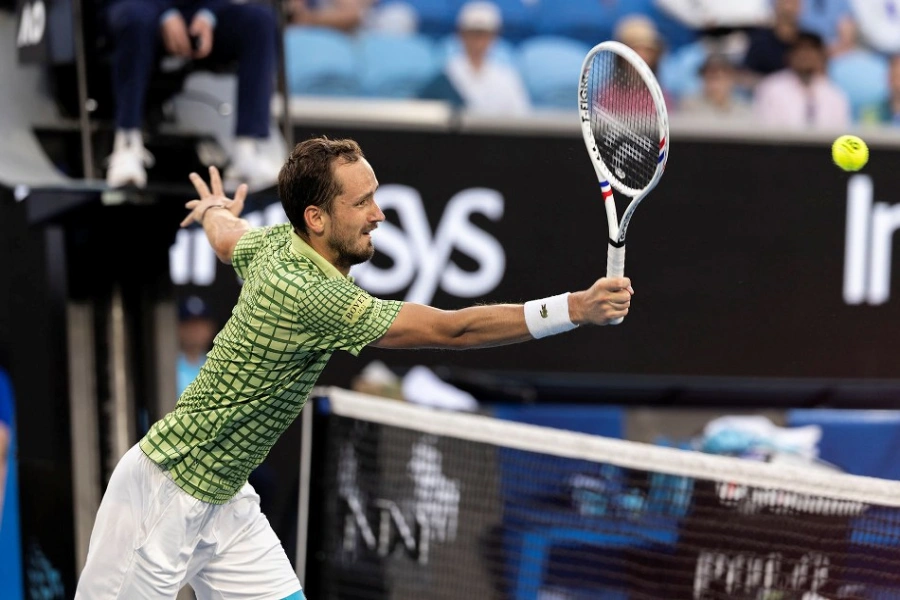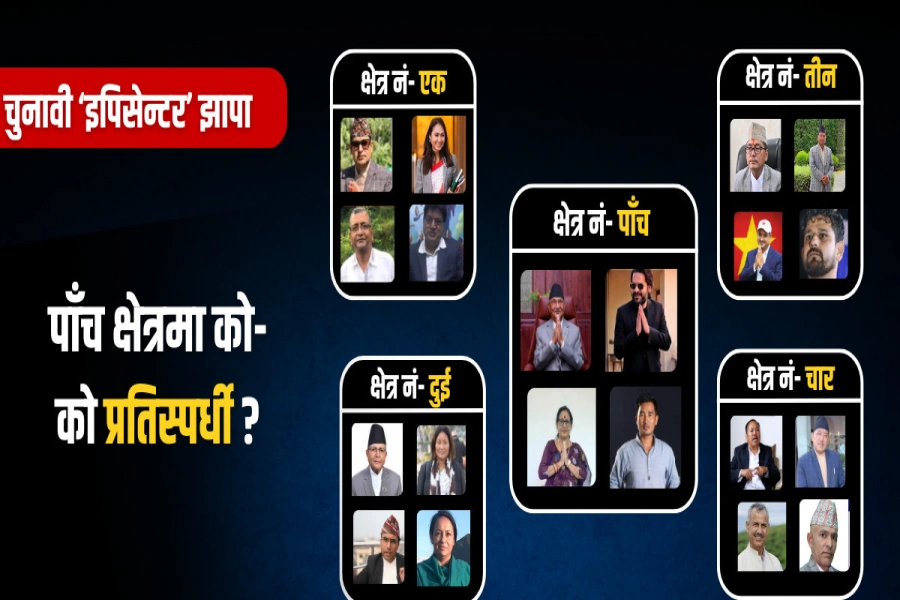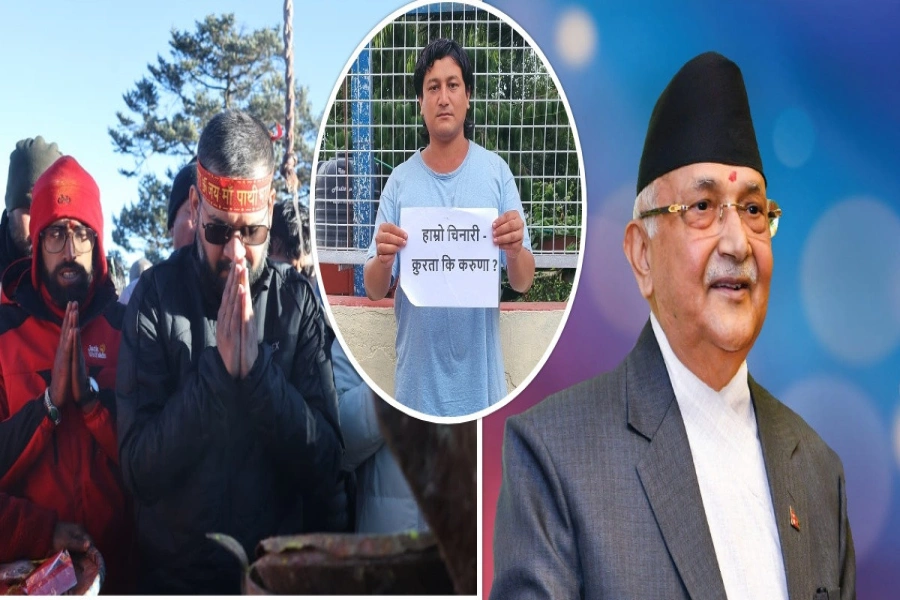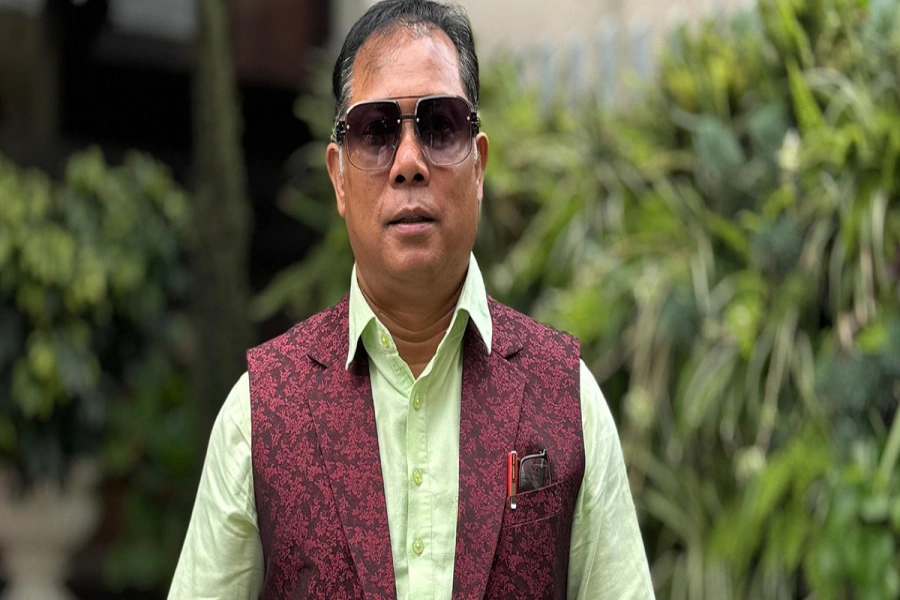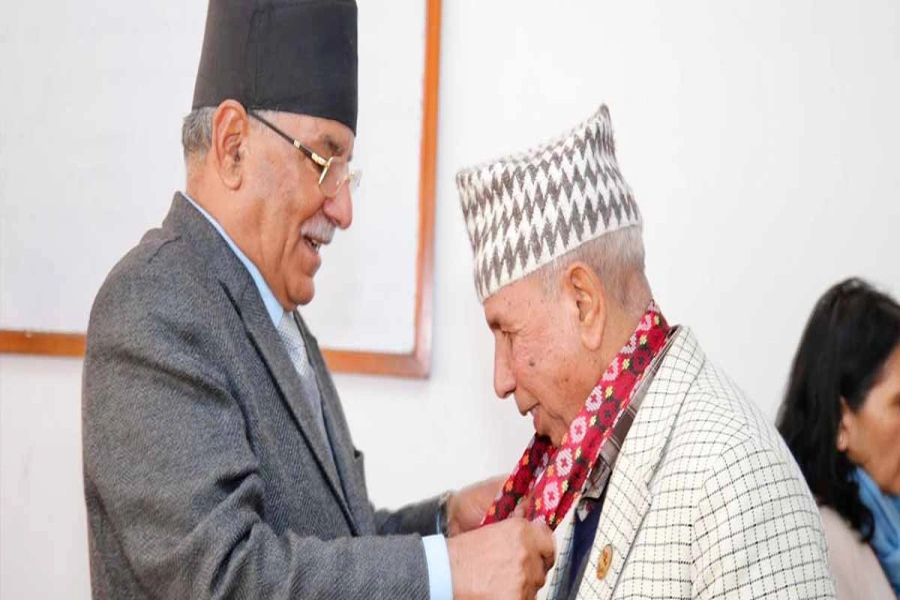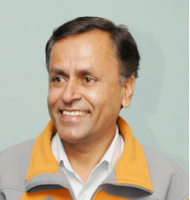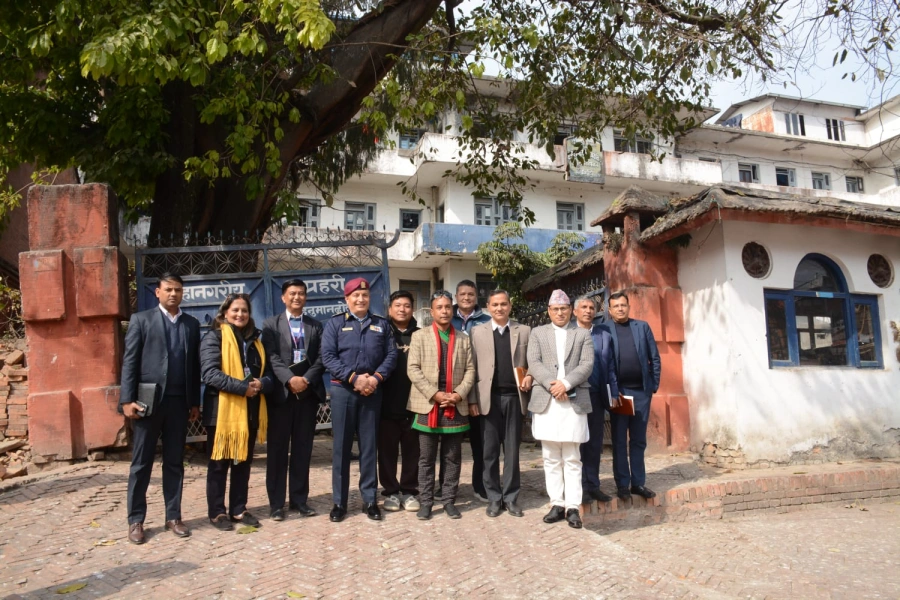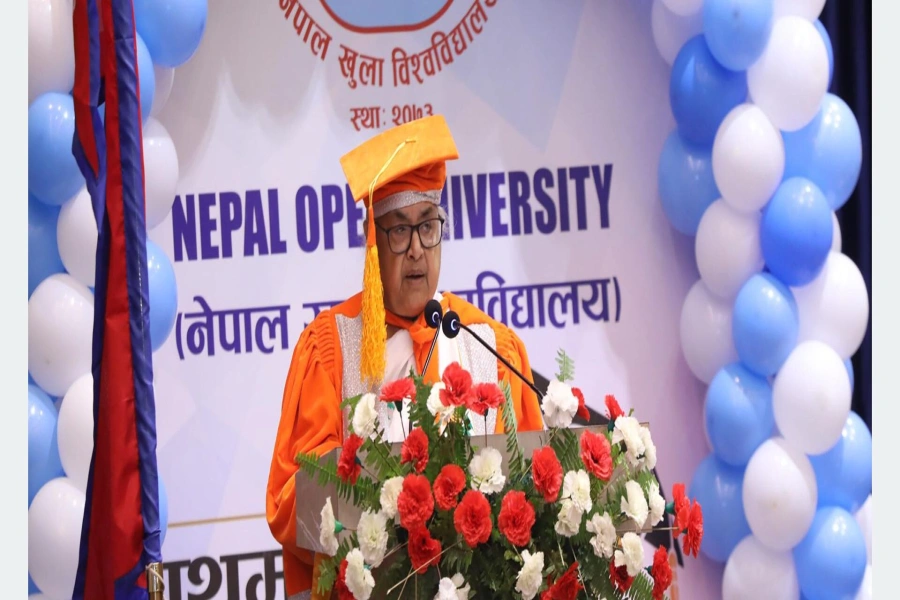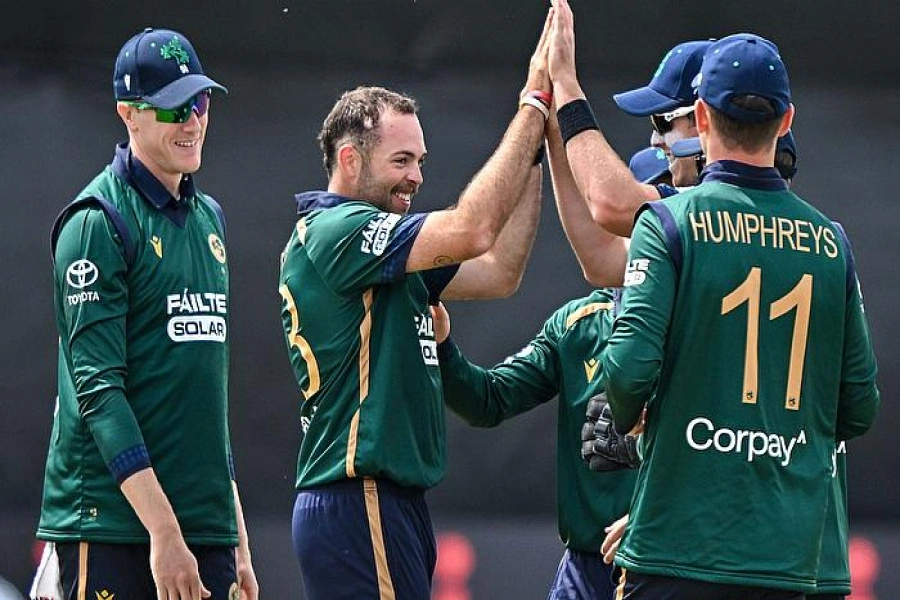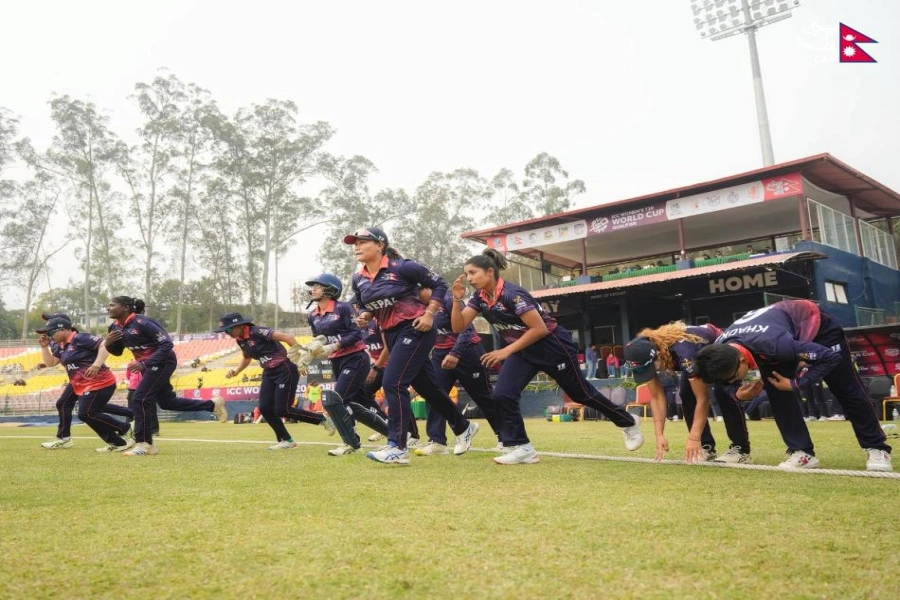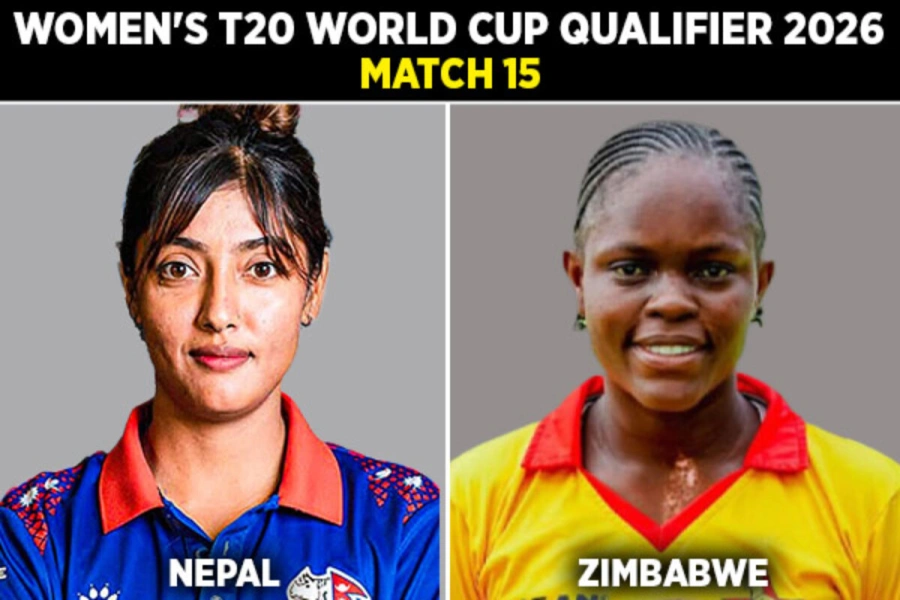There is one man in Nepali politics who has stayed right at the epicenter of its constantly shifting landscape for long: Pushpa Kamal Dahal, aka Prachanda. He has had an iron grip on his party for over 35 years and spent almost two decades at the forefront of mainstream politics. He has been Prime Minister thrice–most recently with only 32 seats in parliament. Prachanda has an uncanny knack for staying relevant, even when his political obituary does seem imminent. But with himself out of the center of Nepali coalition politics after nine years, what's next for Prachanda?
Recent developments within the Maoist Center hint at a possible future trajectory for Prachanda. The recent standing committee meeting of the party brought to light extensive dissent against Prachanda's leadership. The party under General Secretary Prabhakar went as far as to demand that Prachanda step down from party responsibilities. While the immediate crisis was diffused with Prachanda's commitment to address Prabhakar's concerns, the meeting represented an important turning point. A narrative that began with a severe condemnation of Prachanda's style—his frequent changing of coalitions, autocratic manner of running the party, and his failures—ended up discussing reforms in the future with Prachanda at the center of the party.
This recent development within the Maoist Centre is a strategic maneuver by Prachanda to further consolidate his power. Throughout his political career, Prachanda has repeatedly faced challenges to his authority, only to emerge stronger by positioning himself as the undisputed leader of his party. The standing committee meeting, which began with extensive criticism of his leadership, ultimately shifted towards discussing future reforms that still place Prachanda at the center. This shift is no coincidence; it reflects Prachanda's calculated approach to quelling dissent while reaffirming his dominance.
Aishwarya Rai Bachchan's death hoax goes viral

This brings us to the reality of Prachanda's current position: his party is at its weakest ever. In the last election, the Maoist Centre won only 32 seats, capturing a mere 11 percent of the total votes. Activities of the party have fizzled out; cadres are disillusioned. A feeling of being sidelined and disassociated from the party leadership has grown among former rebels. Prachanda's iron grip over his comrades has now begun to slip.
Prachanda is seeking consolidation by attempting to reach out to his erstwhile Maoist comrades gone astray. Key figures like Biplab and Mahendra Raya joining the fold are almost a certainty. He has reached out to Madhav Nepal for party unification. To many, it seemed like a positive move, a step towards reunifying those scattered forces of the Maoist movement. Even if there is less possibility of party unification right now, strengthening the opposition via the Socialist Forum seems like a good strategy. But reunification/revival of the Socialist Forum should not be a paramount agenda for Prachanda. The actual challenge is the revival of the party organization, which has been crumbling.
The history of intolerance towards opposition within one's ranks is very much there in Prachanda. Now, the Maoist Center has termed the present coalition between the two largest parties in parliament as the "coalition of regression," and there are threats of street protests. Although it is indeed the opposition's task to keep the government on its toes, Prachanda should follow a different path. Rather than taking to the streets—unless the government becomes openly authoritarian—he would be better off making his lawmakers more vocal in parliament and rebuilding the party structure. This would also offer an opportunity, at least, to democratize the party more, though no such change can be expected in the Maoist Center.
From grassroots cadres to the party leadership level, there is a growing skepticism about the party's future within the Maoist Center. A sense of pessimism dominates, and some even say that the party's immediate future is non-existent. It’s impossible to overlook the possibility that after KP Oli's two-year premiership in coalition with the Nepali Congress, Prachanda may once again sell the dreams of communist party reunification. That may tempt Prachanda to try and once more consolidate power in his hands. He would be well advised to overcome this temptation.
The fact is, Prachanda is increasingly getting reduced to irrelevance in the fast-emerging political scenario. Though he has a proven talent for developing a feel for power play and hijacking the center-stage of Nepali politics, the chances of his doing so now are becoming remote. While the unpredictability of Nepali politics and the self-interested nature of various parties may provide opportunities for him, the prospects for Prachanda's reclamation to his former touts do not look very bright. If he is to remain relevant, Prachanda needs a dramatic transformation—returning to the principles that once made Pushpa Kamal Dahal the revolutionary leader who commanded the respect of his followers.
If Prachanda fails to make proper adjustments in time, then things can become very bad for his party. The isolation is going to increase, and the members of the Maoist Center will start defecting to other political parties that seem to hold some promise for better futures. The very relevance of the party is at stake, and Prachanda's inability to change could ultimately lead to its demise. It could signal the end for a once-formidable leader unless he is able to rediscover what once made him the central figure of Nepali politics.
For Prachanda, it is time for a change of priorities. His efforts to play with this coalition have to be put on the back burner; instead, he has the more urgent task of strengthening his party. The New Nepali Dream that Prachanda once championed is fading, in large part due to his own inability to deliver and his role as a harbinger of political instability. If Prachanda is to remain relevant in the years to come, he should first rebuild the foundation of his party and restore faith among those who looked up to him for leadership.




